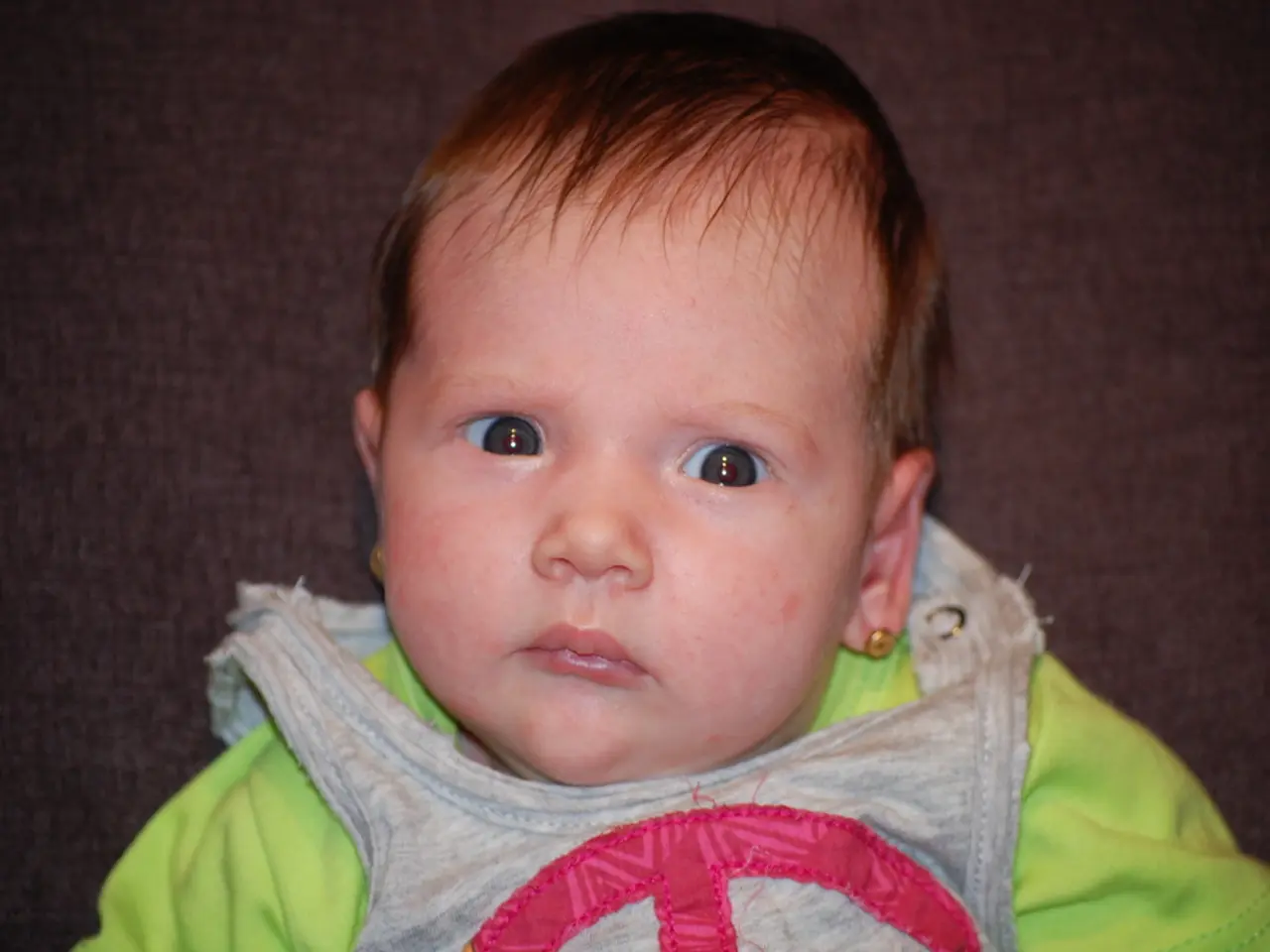Toddler ADHD Symptoms: Identifying Early Signs, Recognizing Symptoms, and Exploring Treatment Options
In the realm of child development, Attention Deficit Hyperactivity Disorder (ADHD) can show early signs as young as around 2 to 3 years old, though diagnosing ADHD at this very young age can be challenging due to overlap with typical childhood behaviors and developmental variability.
Symptoms that may indicate ADHD in toddlers can include unusual restlessness, constant climbing or running, difficulty sitting still, and trouble listening during activities like storytime. However, it's important to note that formal diagnosis before age 4 is generally difficult because typical toddler behavior can resemble ADHD traits.
Diagnosing ADHD in young children requires careful clinical judgment by specialists. The presence of symptoms must be beyond what is typical for the child’s age and developmental level. Diagnosis usually involves comprehensive evaluations including behavioral observations, input from parents and caregivers, and ruling out other causes such as anxiety, stress, or sleep issues. Teachers and school support personnel may be involved for children old enough to attend preschool or kindergarten, but for toddlers, pediatricians and mental health professionals are key.
Early intervention often focuses on behavioral support tailored to the child’s developmental level, including structured routines and strategies to manage hyperactivity and impulsivity. Medication is rarely the first-line treatment for children under 6 years old; behavioral therapies and parent training are preferred initially, with careful consideration of benefits and risks before pharmacological treatment.
As of 2016, around 388,000 children aged 2-5 years in the U.S. had received a diagnosis of ADHD. However, a CDC official presented a report in 2014 stating that some 2-3-year-olds may be receiving medication for ADHD in ways that do not meet the established guidelines in the U.S.
For parents suspecting ADHD in toddlers, it's crucial to seek advice from a doctor. If symptoms do not improve with behavioral therapy and are moderate to severe, a doctor may recommend methylphenidate hydrochloride (Ritalin) and other stimulant medicines for older children. However, it's important to note that the FDA has not approved the use of Ritalin in children under 6 years old, due to a lack of evidence that it is safe or effective.
Relevant specialists for evaluating ADHD in preschool-age children or infants may include a speech pathologist, developmental pediatrician, psychologist, or psychiatrist. In children aged 4-5 years, a doctor might recommend behavioral therapy for ADHD symptoms.
In conclusion, parents and caregivers should be vigilant about the signs of ADHD in toddlers and seek professional advice if they suspect the condition. Early intervention with behavioral support can help manage the symptoms and ensure the child's developmental progress.
- In some cases, ulcerative colitis, a type of inflammatory bowel disease, can display symptoms similar to ADHD, leading to misdiagnosis in children.
- AQ (Autism-Spectrum Quotient) tests can help identify signs of autism, another condition that may share symptoms with ADHD in children.
- HIV (Human Immunodeficiency Virus) can affect cognitive development, leading to difficulties in focus and behavior reminiscent of ADHD.
- Multiple Sclerosis (MS), a condition that affects the central nervous system, can also impact cognitive function and behavior, potentially resembling ADHD.
- The science of mental health has made strides in the development of predictive models for ADHD, aiding in earlier and more accurate diagnoses.
- Pfizer, a pharmaceutical company, has been researching treatments for various diseases, including psoriasis and hepatitis, but their focus on ADHD therapies has been significant and widely recognized.
- Behavioral therapy, a crucial part of ADHD treatment, can also be beneficial in managing symptoms of disorders like anxiety and stress in children.
- Type 2 diabetes, a disease affecting sugar levels in the body, can cause cognitive decline and difficulties in focus, leading to a possible resemblance of ADHD.
- Health-and-wellness professionals recommend adhering to structured routines and strategies for managing hyperactivity and impulsivity as part of the behavioral therapy for ADHD in children.
- For parents of toddlers experiencing symptoms of ADHD, seeking advice from a mental health professional can help determine if the symptoms are due to ADHD or if they might be linked to a developmental delay or other learning disorder.




